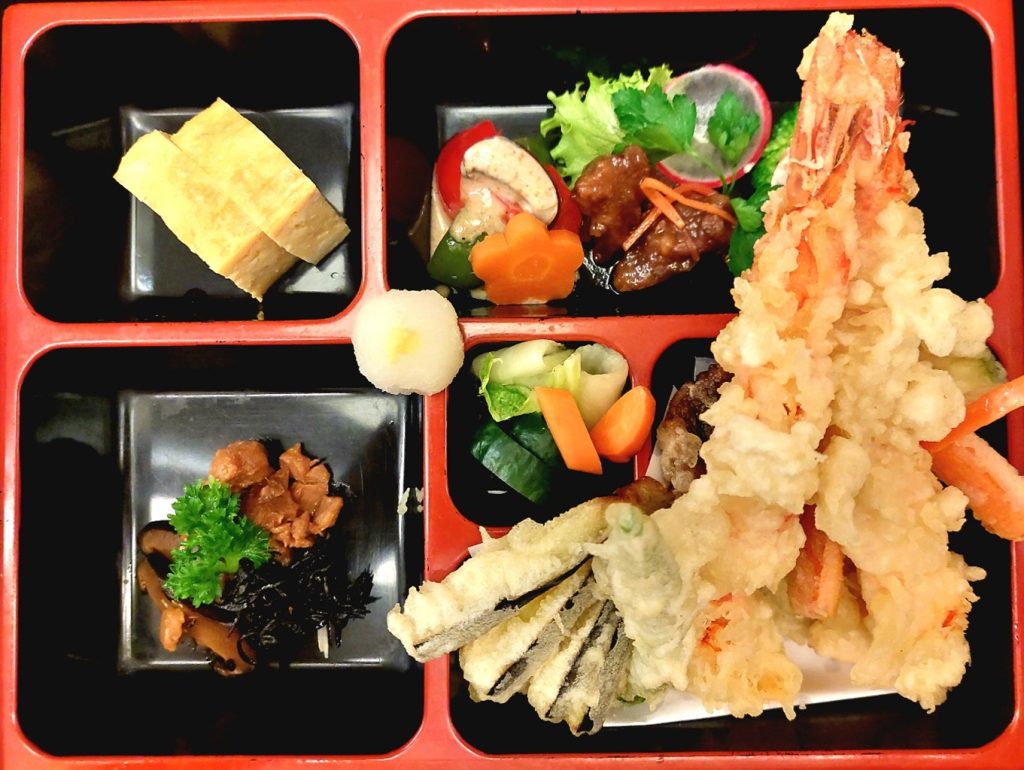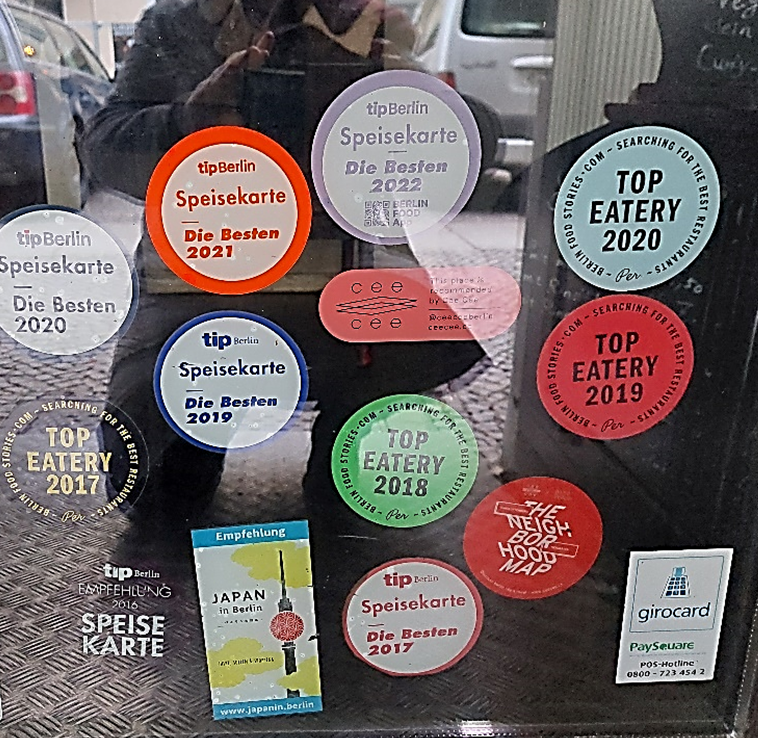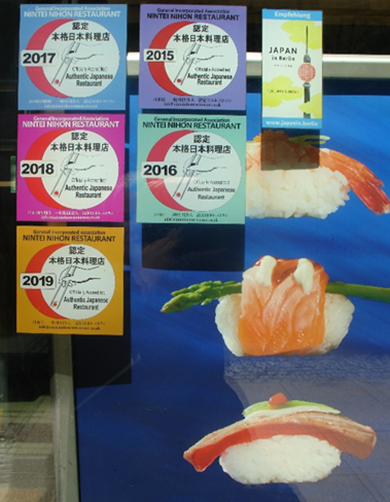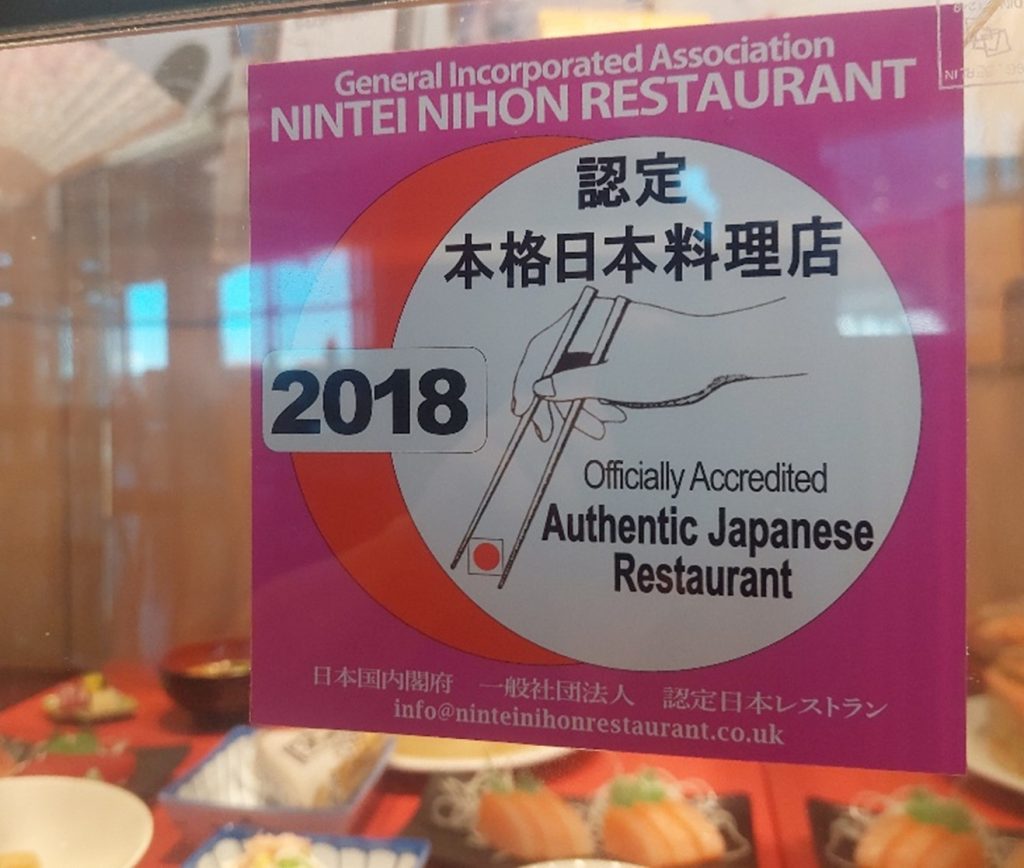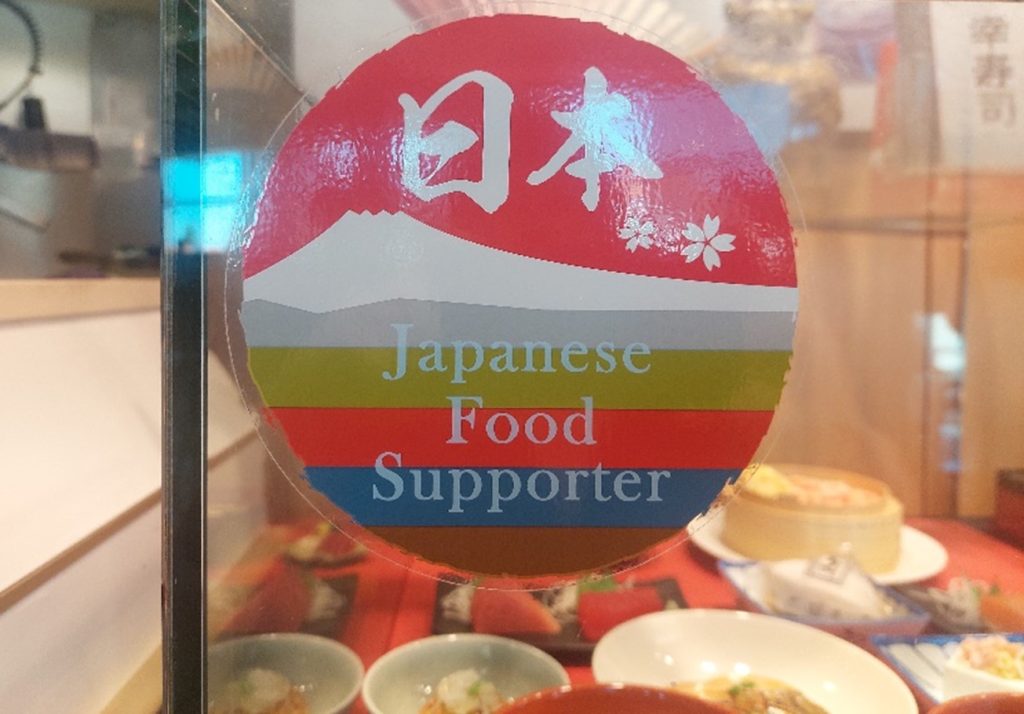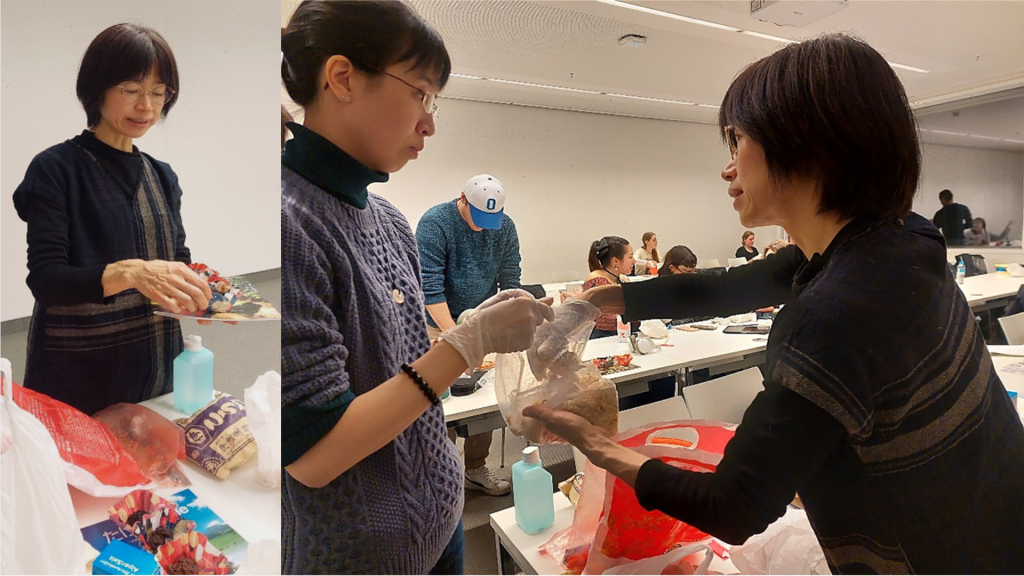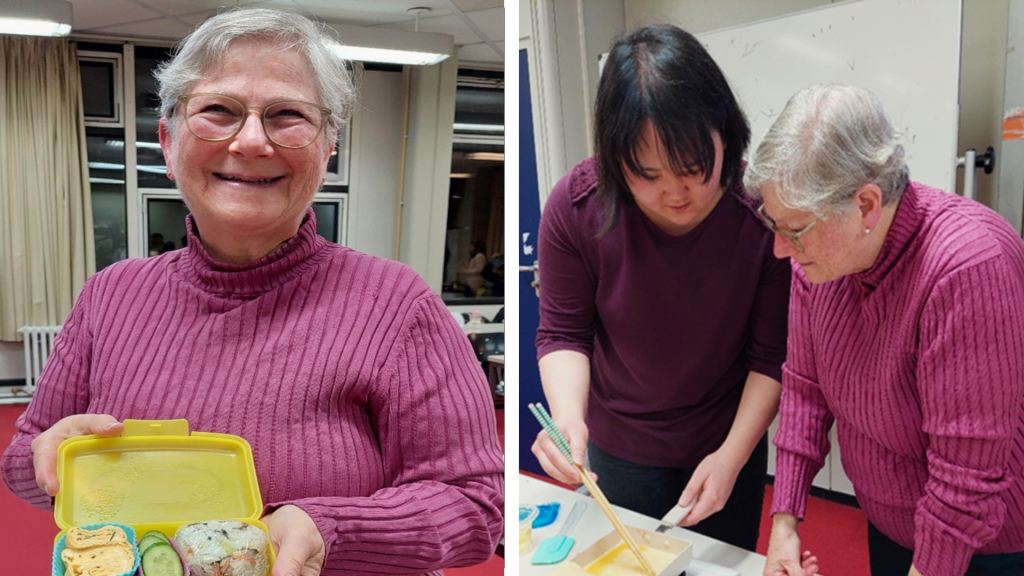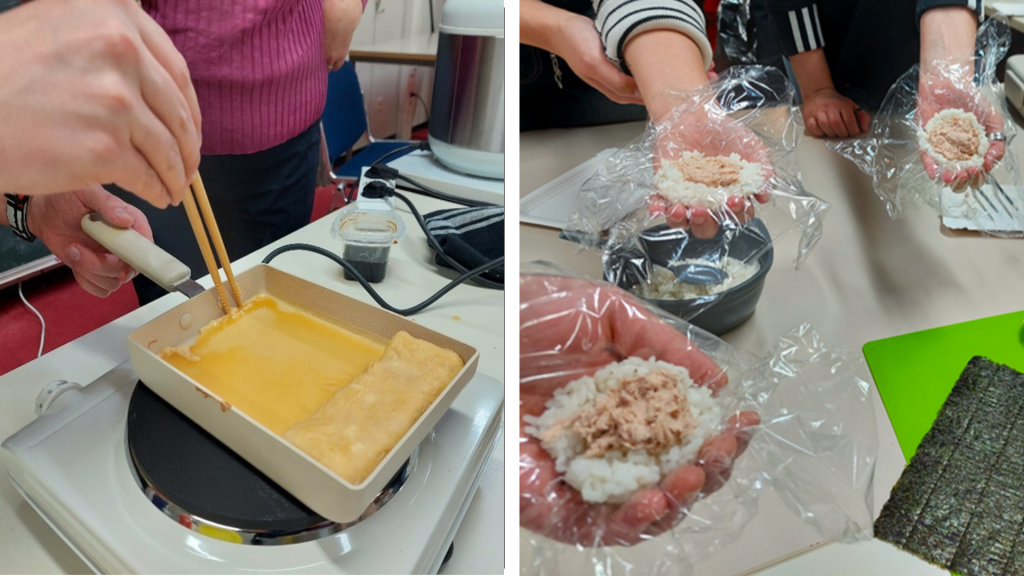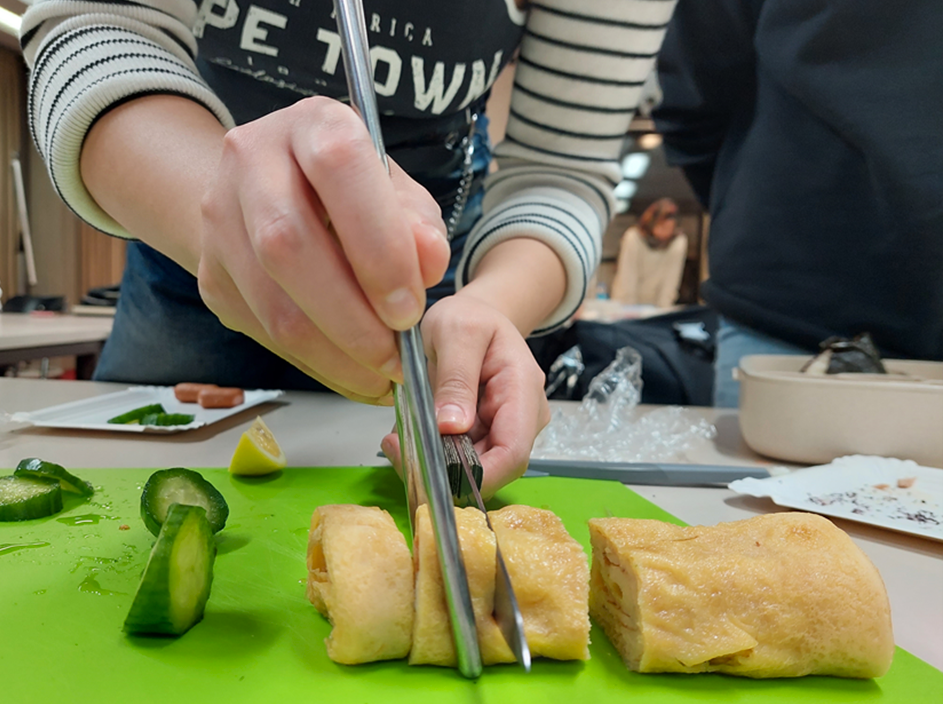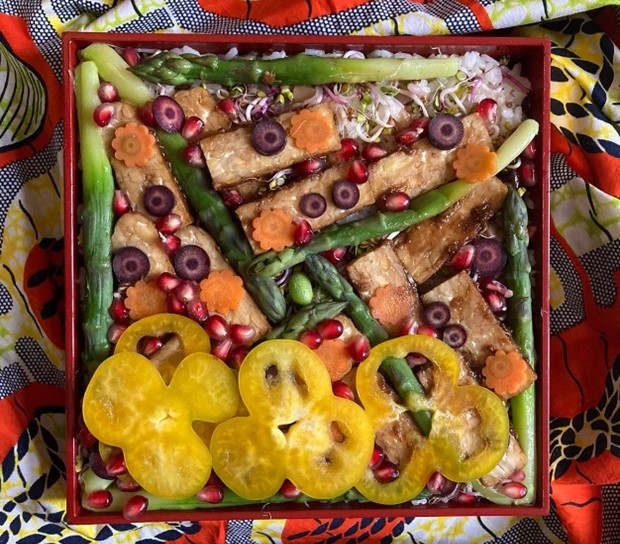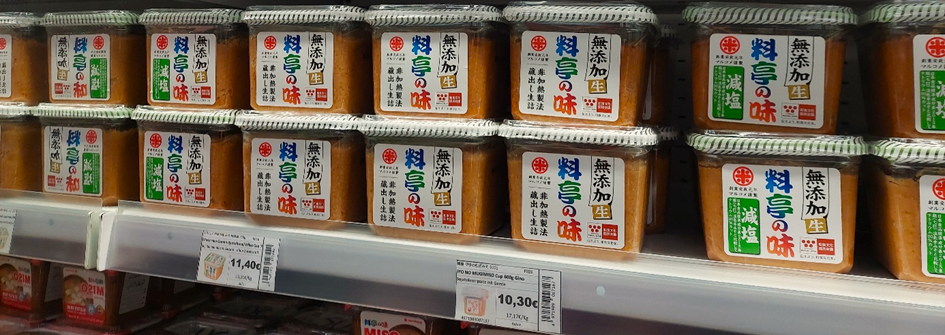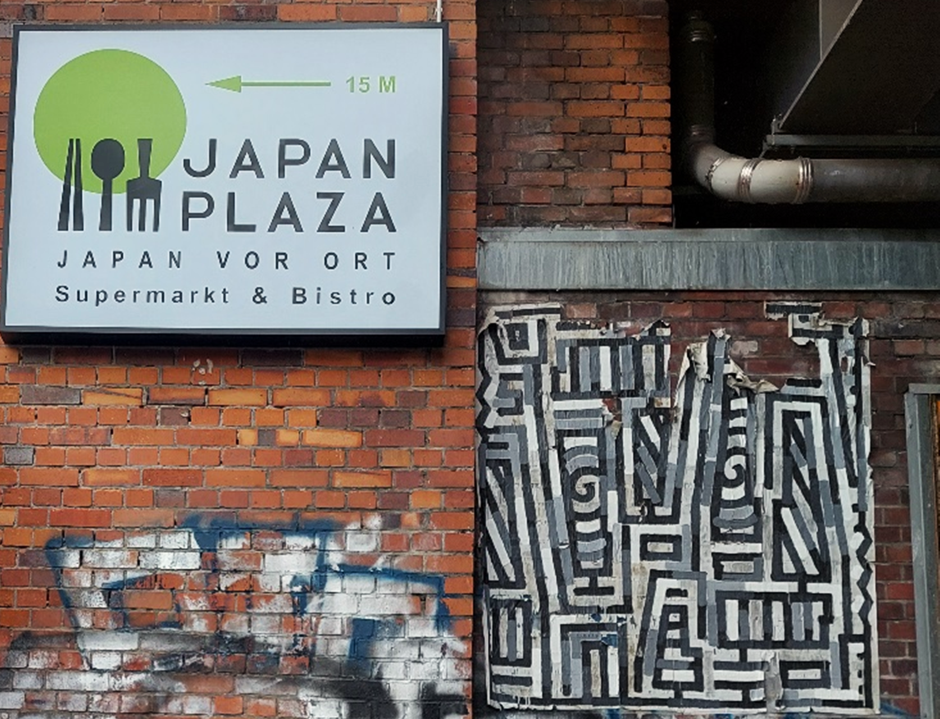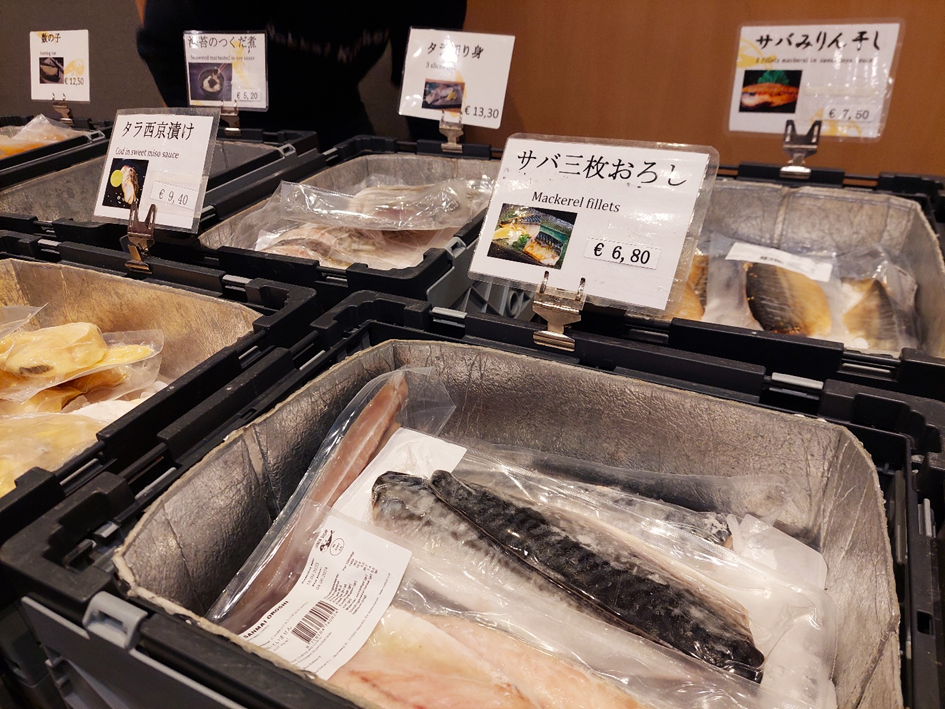by Cornelia Reiher
This year’s first joint interview took place on June 28. After the course participants had gained their first interview experience in Japanese through online interviews with students from Seikei University in Tokyo, the first interview with an owner of a Japanese restaurant in Berlin took place. During the course, the students had already started working on their own projects on Japanese cuisine in Berlin and went on excursions to restaurants and the Japanese canteen at the FU. The resulting questions became the inspiration for the questions we wanted to ask Mr. Tsuchiya from Tokyo Gohan. A student had invited Mr. Tsuchiya and he had agreed to visit us in Dahlem and bring onigiri, the specialty of Tokyo Gohan.

Copyright © Cornelia Reiher 2024
As more students are participating this year than usual and the level of Japanese is very different because some are still studying in the lower semesters of the bachelor’s program, we decided that not all course participants would ask questions. Part of the group observed the interview and the interactions between interviewer and interviewee and gave feedback afterwards. When Mr. Tsuchiya arrived at the institute with a huge cooler with onigiri, everyone was quite excited. The interview went well and was very informative. After an official part where students asked questions one by one, we ate onigiri together with Mr. Tsuchiya and chatted casually. Mr. Tsuchiya also had questions for us and was happy that so many students were interested in Japan.
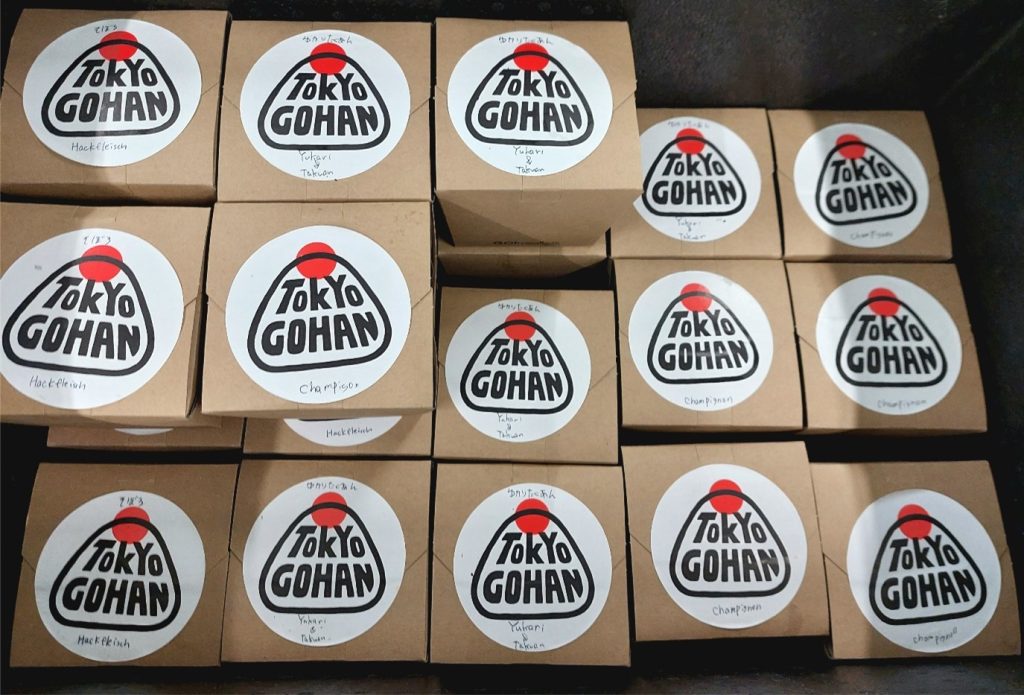
Copyright © Cornelia Reiher 2024
We learned that Mr. Tsuchiya, a 29-year-old from Tokyo, founded Tokyo Gohan in Dresden in 2021 together with a friend. In 2022, they opened a second restaurant in Berlin. Mr. Tsuchiya originally aspired to a career in soccer in Germany, but switched to the culinary world after training in an onigiri store in Tokyo. He saw a niche in the German market for onigiri and chose Dresden for its affordable rents and relaxed atmosphere. In Berlin, Tokyo Gohan offers popular flavors such as shake (salmon) and vegan onigiri and has now grown to a team of six employees. The store serves a wide customer base, from young families to older customers, and uses social media and delivery services such as Wolt and Uber Eats for its marketing. Mr. Tsuchiya uses mainly local ingredients and is constantly adapting the menu.

Copyright © Cornelia Reiher 2024
After the interview, we reflected together on the course of the interview and talked about possible improvements. Overall, however, students were satisfied with the interview. The next task is to transcribe a part of the interview. The interview was a wonderful opportunity to practice Japanese, learn more about the Japanese foodscape in Berlin and taste the delicious onigiri from Tokyo Gohan. Thank you, Cosmo, for inviting Mr. Tsuchiya, and thank you, Mr. Tsuchiya, for coming all the way to Freie Universität in Dahlem.



